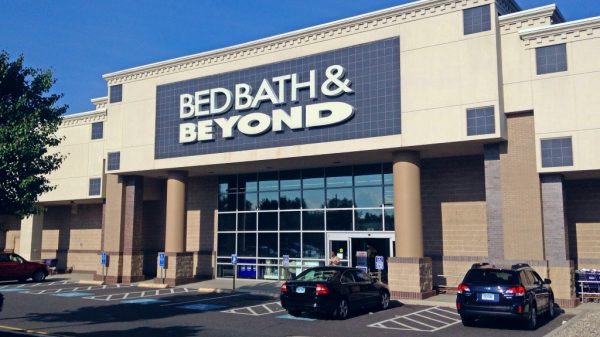
Paul Krugman validates what I’ve been saying to clients/readers/prospects for some time.
Any serious reduction in American driving will require more than this — it will mean changing how and where many of us live.
My belief is this – properties that are closer to urban cores – roughly defined as having a coffee shop/grocery store/park/gathering place – will appreciate at a greater rate than those that require more driving to get to said urban centers.
Using back-of-the-napkin math – if when gas costs five bucks a gallon –
If driving to the store/work/etc costs an additional ten to fifteen dollars for those properties not close to urban centers, and the properties the are close to urban centers are able to save that gas money – isn’t it reasonable to conclude that that theoretical savings of three to five hundred dollars a month would then be applicable to one’s mortgage payment?
I am seeing a contraction of the geographic area I service, and clients are now asking more and more about bikeabilty, walkability and public transport. Higher gas prices are likely to impact our business in fundamental ways – among them –
– Business models – buyers pay up front or do more legwork on their own. Hybrid Redfin models or derivations thereof may become more popular and prominent.
– Denser suburbs and fewer exurbs
– Increased taxes – property tax and sales tax – to increase infrastructure, thus affecting affordability
– Fewer Realtors and real estate agents as more discover that the Realtor pot of gold is harder to find.
– MLS’s may have to change their restrictions on neighborhood and area photos and videos – consumers (and Realtors!) want to see more than what is currently offered. If MLS’ want to remain the primary point of contact, they will have to adapt and provide more. Including or excluding properties without physically visiting properties will be more and more important.
– More boutique brokerages as the cost of doing business becomes too great for many of the bigger brokerages.
When we are looking back at this recession in five years with the benefit of hindsight, what opportunities will we be thankful we took advantage of? What opportunities will we wish we had seen and seized?
Related reading:
Could Higher oil prices be a good thing?
Dad, Husband, Charlottesville Realtor, real estate Blogger, occasional speaker - Inman Connects, NAR Conferences - based in Charlottesville, Virginia. A native Virginian, I graduated from VMI in 1998, am a third generation Realtor (since 2001) and have been "publishing" as a real estate blogger since January 2005. I've chosen to get involved in Realtor Associations on the local, state & national levels, having served on the NAR's RPR & MLS groups. Find me in Charlottesville, Crozet and Twitter.











































Barry Cunningham
May 20, 2008 at 2:23 pm
Hi Jim,
I would have read the article and may have enjoyed it but once you mentioned Paul Krugman it was all over for me.
Joel McDonald
May 20, 2008 at 2:25 pm
Great Post Jim!
I believe by the time we hit 5 bucks a gallon, we’ll start seeing “How far do you commute to work?” on mortgage loan applications, and associated “per mile” costs will be factored into back-end-ratios.
Jim Duncan
May 20, 2008 at 4:19 pm
Barry –
My first draft had a disclaimer that despite the fact it came from the NYTimes, it was a worthwhile article. It’s worth a read, seriously.
Jayson
May 20, 2008 at 4:26 pm
Great post and angle – I haven’t looked much at what opportunities are in rising gas prices. It’s always good to look for positives.
Ron Alpert
May 20, 2008 at 5:57 pm
This is the American version of the transformation in most South American and EU cities, where the poorest folks move to the outskirts. Predicable.
Faina Sechzer
May 22, 2008 at 5:43 am
For suburban areas without good public transportation (which many are) raising gas prices could have a big effect on affordability. Europeans have for a long time dealt with the issue by using public transportation. A lot of infrastructural changes, such as consolidating housing density and developing public transportation systems, would have to happen to simulate European way.
Thomas Johnson
May 22, 2008 at 12:15 pm
In the Sunbelt sprawl cities like ERAHouston, clients accept the brutal commute for one predominant reason: schools. The inner city schools are so bad, that with more than one child, the commute becomes a necessity when compared to a $20,000-$30,000 pre-tax per child private school bill. $5-$6 a gallon is still cheaper than tuition.
The problem with parents trying to change the schools with activism is that the child is out of the school before the there can be any changes from the education-tax and spend complex. The Educrats rely on this fact. It is cheaper for a parent to sacrifice themselves on the freeway during school years than it is to try to reform a failed system in time for the child to benefit. As the boomers age and the nests empty out, I foresee a shift back to the cities and the suburbs becoming the new low income areas. By the time there is any kind of public transportation to the outlying burbs, the millions of McMansions that have been built in the past ten years will have had their mortgages paid off. There will be a whole bunch of squriming in those outlying communities to maintain property values.
@Faina: ERAHouston has a 7 mile toy train line from downtown to the football field. It has been so expensive and the operating losses are so huge that our Metro bus service has been reduced to help cover the losses. The expansions to this line are going to cost billions more and there are no plans in the near future to move anyone from the ‘burbs to the work areas. Just a line to move tourists from one developer’s property to another. Of course, since we are the energy capital of the world, every spike in price means job growth here 😉
The metro Houston area is about 100 miles x 100 miles without counting ex-urbs. Hot fast growing cities like Phoenix and Atlanta are similar in sprawl. How do you mandate density? Houston does not even have zoning. There will be market based solutions based on individuals doing what is in their own best interest, but the effect of expensive energy on real estate will require us as professionals to pay attention and advise our clients accordingly-something which we have always done. These are issues which cannot be addressed by a realty.bot, either. It requires boots and a brain on the ground.
Jeremy Hart
May 26, 2008 at 9:35 pm
Jim, this is an interesting question. In some ways, you and I work very similar markets … Charlottesville proper has an area of about 10 square miles, I think, and Blacksburg proper is about double that. In our area, commute has not been that big of an issue for most of my clients – 15 minutes and you can get to most areas of the Blacksburg/Christiansburg/Radford, and 20 minutes takes out just about out of the entire New River Valley.
One thing I think the Townships will wish they had capitalized on is higher-density opportunities, like you suggest with the urban core idea. I think it’s something that rural areas like ours have missed out on, although Charlottesville seems to be ahead of the game among it’s peers. That’s one way I think our governments are going to have to adjust, not just in the short-term but for the long-term.
Among the industry, I think we’re likely to see a reduction in agents … but I think it’d be interesting to see how membership has fluctuated within local, state and national associations during economic swings. What has the pattern tracked?
I also agree that I think we’ll see some increase in boutique brokerages … didn’t we see a few in Arizona do this recently? 🙂 I’m part of a large brokerage, the largest in the area in fact, and all I keep hearing about is that we need to find a new way to market. I can’t help but think that the brokerage is trying to scale back out of fear, but seems like this is the time we should be looking for new ways to adapt and prepare for new markets. Perhaps large brokerages just can’t move that quickly.
I don’t know what the future holds, but I’m interested to see what comes of this. From trial comes opportunity.